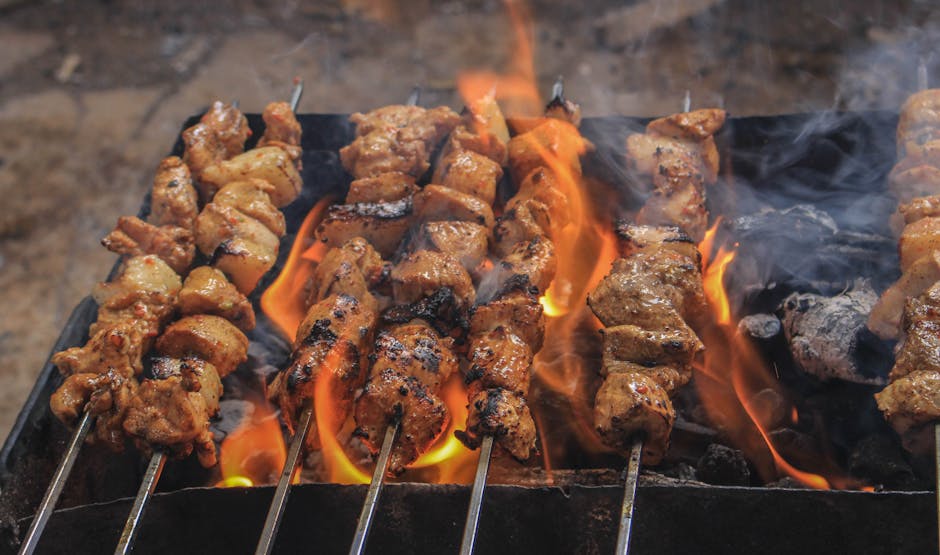Attention all carb enthusiasts and sugar aficionados! Are you ready to embark on a deliciously delightful adventure through the magical world of Costa Rican sweet breads? Get ready to unleash your inner baker and learn the secrets to mastering the art of creating these irresistible treats. From fluffy conchas to decadent empanadas de leche, this article will have you kneading, rolling, and laughing your way to sweet bread perfection in no time. So grab your apron, dust off your rolling pin, and let’s get ready to bake up a storm in true Pura Vida style!
Contents
Exploring Traditional Costa Rican Sweet Breads
When it comes to traditional Costa Rican sweet breads, there’s no shortage of delicious options to indulge in. From fluffy, cinnamon-infused conchas to decadent tres leches cake, Costa Rican bakeries have something to satisfy every sweet tooth.
One popular sweet bread that you must try is pan de elote, a moist and flavorful cornbread made with fresh corn kernels. This unique treat is perfect for breakfast or as an afternoon snack with a cup of coffee.
Another must-try is rosquillas, crispy and sweet fried pastries coated in a sugary glaze. These addictive treats are perfect for satisfying your sweet cravings while enjoying a relaxing afternoon in a local café.
Don’t forget to sample churros, a classic Costa Rican sweet bread that is fried to perfection and sprinkled with cinnamon sugar. These crispy treats are best enjoyed warm and dipped in a rich chocolate sauce for an extra indulgent experience.

The Importance of Quality Ingredients in Costa Rican Baking
Baking in Costa Rica is a true art form, with generations of recipes being passed down from abuelita to abuelita. And at the heart of any delicious Costa Rican treat are the quality ingredients that go into it.
Whether you’re whipping up a batch of fluffy tres leches cake or crispy pastel de queso, using the freshest and finest ingredients is key to achieving that authentic Costa Rican flavor. Just imagine trying to make a savory empanada with stale flour or a bland arroz con leche with off-brand milk – it would be a culinary disaster!
When you invest in high-quality ingredients for your Costa Rican baking endeavors, you’re not just making tasty treats – you’re honoring the rich culinary heritage of the country. Fresh eggs, rich butter, and sweet platanos all play a crucial role in creating mouthwatering desserts that will transport you straight to the sunny beaches of Manuel Antonio.
So next time you’re in the kitchen baking up a storm, remember that the secret ingredient to truly delicious Costa Rican treats is using only the best of the best. Don’t skimp on quality – your taste buds (and your abuelita) will thank you!

Mastering the Key Techniques for Perfect Sweet Breads
So you’ve dabbled in the art of sweet bread baking, but you’re ready to take your skills to the next level and achieve sweet bread perfection. Fear not, dear baker, for we have compiled the ultimate guide to .
First and foremost, let’s talk about yeast activation. Yeast is the magic ingredient that makes your sweet bread rise and become fluffy and delicious. Make sure to use warm water, not hot, when activating your yeast. Think of it as a warm hug for your yeast cells – too hot and you’ll scorch them, too cold and they’ll just be chilly and uncooperative.
Next up, let’s chat about kneading techniques. Kneading is like giving your sweet bread dough a spa day – it helps develop the gluten and gives your bread structure. Don’t be afraid to get a little messy and really work that dough. Channel your inner karate kid and give it those wax on, wax off vibes.
And finally, don’t underestimate the power of patience and precision when it comes to sweet bread baking. Let your dough rise in a warm, cozy spot, give it the time it needs to double in size. It’s like watching a cute little dough baby grow into a beautiful sweet bread masterpiece. And when it comes to baking, pay attention to oven temperatures – you don’t want to over or under bake your sweet bread. Remember, precision is key, my friend.

Tips and Tricks for Achieving the Ideal Texture and Flavors
When it comes to achieving the perfect texture and flavors in your dishes, there are a few tips and tricks that can take your cooking to the next level. Here are some ideas to help you become a texture and flavor wizard in the kitchen:
1. **Don’t be afraid to get your hands dirty** – Some dishes require hands-on manipulation to achieve the ideal texture. Whether it’s kneading dough, massaging kale, or squeezing out excess liquid from tofu, don’t be afraid to roll up your sleeves and get in there.
2. **Experiment with unexpected flavor combinations** – Mixing sweet and savory, spicy and sweet, or salty and tangy can create a flavor explosion in your dishes. Don’t be afraid to think outside the box and try new combinations to tantalize your taste buds.
3. **Play with temperature** – Temperature can greatly impact the texture and flavors of your dishes. From serving a hot dish with a cold topping to using frozen ingredients in a recipe, play around with different temperatures to create contrast and intrigue in your meals.
4. **Don’t skimp on seasonings** – Seasonings are the key to bringing out the best flavors in your dishes. Experiment with different herbs, spices, and condiments to elevate your meals to gourmet status. Remember, a little extra seasoning never hurt anyone (except maybe your spice rack).

Incorporating Local Flavors and Ingredients into Your Baking
Get ready to spice up your baking with some local flair!
Forget about boring old vanilla and chocolate – it’s time to incorporate some local flavors and ingredients into your baking creations! Whether you’re looking to add a touch of regional pizazz or just want to support your local farmers and producers, there are plenty of fun and delicious options to choose from.
From juicy peaches to tangy citrus fruits, the possibilities are endless when it comes to finding ways to incorporate local ingredients into your baking. So why not get a little adventurous and try something new? After all, who knows – you might just discover your new favorite ingredient right in your own backyard!
So, grab your apron and get ready to take your baking game to the next level with some local flavor. Your taste buds will thank you!
Perfecting the Presentation of Your Costa Rican Sweet Breads
So you’ve baked up a batch of delicious Costa Rican sweet breads, but now it’s time to take your presentation game to the next level. Here are some tips to help you perfect the aesthetic appeal of your tasty treats:
First off, consider investing in some colorful, traditional Costa Rican textiles to use as tablecloths or placemats. These vibrant fabrics will not only add a pop of color to your presentation, but they’ll also evoke the rich cultural heritage of Costa Rica.
Next, arrange your sweet breads on a decorative serving platter or wooden board. Don’t just plop them down haphazardly - take the time to create an eye-catching display that showcases the different shapes and textures of your breads.
For an extra touch of whimsy, consider adding some fresh tropical fruit garnishes to your platter. Sliced mango, pineapple, or passion fruit will not only complement the flavors of your breads, but they’ll also add a touch of exotic flair to your presentation.
FAQs
What are some key tips for mastering the art of making Costa Rican sweet breads?
To truly master the art of making Costa Rican sweet breads, you must first learn to embrace the magic of imperfection. Let go of your need for perfectly symmetrical shapes and pristine loaves. Instead, allow the dough to take on a life of its own, embracing its unique quirks and character. Embrace the chaos, my friend.
What are some traditional flavor combinations to experiment with in Costa Rican sweet breads?
When it comes to flavor combinations in Costa Rican sweet breads, the possibilities are endless. From the classic pairing of coconut and pineapple to the unexpected marriage of guava and cheese, don’t be afraid to get a little wild with your flavors! Let your taste buds be your guide as you explore the delicious world of Costa Rican sweet breads.
How important is it to let the dough rest when making sweet breads?
Ah, the age-old question of dough resting. While it may seem like an unnecessary step in the baking process, letting the dough rest is actually crucial for developing the flavors and textures of your sweet breads. Just as we all need a little rest and relaxation from time to time, so too does your dough. So sit back, relax, and let that dough do its thing.
What are some common mistakes to avoid when baking Costa Rican sweet breads?
One of the most common mistakes when baking Costa Rican sweet breads is overworking the dough. Remember, your dough is like a delicate flower that needs to be handled with care. Don’t knead it into submission or you’ll end up with tough, dense loaves that even the bravest of birds would struggle to eat. Treat your dough with the respect it deserves.
How can one add a unique twist to traditional Costa Rican sweet bread recipes?
If you’re looking to add a unique twist to traditional Costa Rican sweet bread recipes, the key is to think outside the box. Experiment with different ingredients, flavor combinations, and shapes to create a sweet bread that reflects your personality and creativity. Don’t be afraid to take risks and try new things – after all, that’s how the best inventions are made!
—
Time to Get Baking!
Congratulations on reaching the end of our sweet journey through the world of Costa Rican pan dulce! Now that you’ve armed yourself with the knowledge and skills to conquer these delicious treats, it’s time to put on your apron, dust off that rolling pin, and get baking. Whether you’re a seasoned pro or a novice in the kitchen, these sweet breads are sure to impress your friends and family. So go forth, brave bakers, and let the scent of freshly baked pan dulce fill your home with joy and your belly with happiness. ¡Buen provecho!




